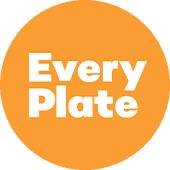Carbs have gotten a really bad rap when it comes to weight-loss, blood sugar balance and overall health.
Even in the integrative health field, there are schools of thought which lump all carbohydrates squarely into the “do not eat” category.
And in some extreme cases of chronic disease, that type of approach may be warranted for a period of time.
Yet our commonsense, that inner knowing we all have when it comes to health, tells us that not all carbs can be bad.
After all, how could you compare the carbohydrates found in a fiber-rich, nutrient-dense carrot or apple to those found in a supermarket cupcake or lollipop?
It doesn’t add up, does it? And deep down, we all know it.
So, with the many differing opinions on which carbs are “good” versus “bad”, what’s a health-conscious person to do?
Beyond our awareness that each body is truly unique (and no diet is ever one-size-fits-all), are there any general guidelines we can all start with in exploring what helps our bodies to thrive?
The answer is yes, and here’s what you need to know to get started:
First of all, as a general rule do not worry about carbohydrates found in vegetables and fruits
Yes, for some people with extreme cases of metabolic or neurological disease, the carbs in a sweet potato or mango, for example, could be potentially problematic if over-consumed.
However, the majority of us will benefit far more from enjoying more fruits and vegetables rather than worrying about how many carbs they contain.
Ideally, we want to see people eating about 1-2 servings of fresh fruit and at least 5-7 servings of colorful vegetables per day, with an emphasis on leafy greens.
If you are dealing with a chronic blood sugar issue, we may recommend a limit on particularly starchy vegetables like potatoes.
Keep in mind, we are talking about fresh or frozen fruit—not dried fruit (which is easy to over-consume like candy) or canned fruit (which usually contains extra sweeteners and often added chemicals).
If you make that your goal, you should have no issues with the carbohydrates in your produce.
It’s also worth noting, fruits and vegetables are perfectly designed by nature to contain a wealth of fibers and other nutrients that slow down the absorption of their natural sugars.
To enhance your nutrient intake and further the slow-carb effect, where possible, avoid peeling edible skins of your produce.
So, unless your practitioner says otherwise: forget about counting carbs in your fruit and vegetables, and instead focus on getting 1-2 servings of fruit and 5-7 servings of colorful vegetables daily.
Second, when it comes to grains, a little more care is warranted
We get a lot of questions from members about grains—should they eat them at all? If so, what varieties are best? Should they go gluten-free?
We do recommend minimizing refined grain (flour-based) foods from the daily diet. This is because flours are typically stripped of their fiber, and therefore are rapidly digested and can cause a quick rise (and subsequent crash) in blood sugar.
However, for most people, moderate amounts of gluten-free whole grains don’t present a problem (e.g. quinoa, brown rice).
Whole grains are the seeds of grass (and related) plants—and in principle, they are very nutritious.
But grains are indeed dense carbohydrates, which can cause problems for those who want to lose weight or who have insulin resistance, pre-diabetes or beyond.
Grains can also be hard to digest (especially for those with IBS) and/or cause issues with cross-reactive sensitivity and inflammation in those with autoimmune or chronic inflammatory challenges.
All that said, we find grains are the category of healthy, whole carbohydrates that most people can benefit from exploring more carefully.
Perhaps you thrive with ample whole grains, perhaps you don’t.
Not sure? Remove grains fully for your diet (all types) for a full two weeks and see how you feel.
There’s no substitute for this simple “gold standard” elimination experiment. And we’ll address the topic of “going gluten-free” in a future article.
Generally, we like to introduce and encourage our members to explore gluten-free grains more fully as daily choices.
It can be helpful to keep in mind that a serving size for grains is about 1/2 cup.
Some examples of nutritious, gluten-free grains include:
- Brown rice
- Wild rice
- Quinoa
- Millet
- Buckwheat
- Amanranth
- Teff
- Gluten-free oats
Third, enjoy natural sugars and sweeteners sparingly
Now, let’s get into the ultra-controversial carbohydrate-on-the-block: sugar.
A decade or so ago, no one really questioned the effects of sugar on health (except the integrative health community and observant parents of hyper-active children).
In fact, if you went to the doctor or dentist for a checkup as a child, you were rewarded with a lollipop.
But recently, it’s become apparent that excessive consumption of refined sweeteners is a contributor to a host of chronic health issues—from obesity and diabetes[note]https://www.sciencedaily.com/releases/2018/01/180103194659.htm[/note] to digestive health issues[note]https://www.ncbi.nlm.nih.gov/pmc/articles/PMC1379072/[/note] and even some cancers[note]https://www.medicalnewstoday.com/articles/320156.php[/note].
So, it’s clear that refined, white table sugar is a carbohydrate you want to avoid.
But, what about the carbs found in natural sugars like coconut sugar, maple syrup, organic cane sugar or honey—do they have a place in a healthy diet?
They certainly can. But for most people, they still need to be enjoyed sparingly. And some people may need to avoid them completely.
Here’s the deal, if you don’t have a blood sugar or metabolic health issue at all (remember: insulin resistance is often hidden and highly under-diagnosed) and/or your digestive system is in good health, natural sugars like coconut sugar, raw honey or maple syrup are likely fine in small doses.
For example, a teaspoon in your coffee or tea and the occasional dessert should not be a problem.
Keep in mind that eating whole fruit is great option for helping curb those sweet cravings without resorting to a concentrated sweetener.
Cooked fruit with a sprinkling of nuts is particularly rich and satisfying. And roasted sweet potato or winter squash (especially with cinnamon) can also scratch the itch for something sweet.
Stevia is a natural, no-carb sweetener from the stevia plant which won’t spike your blood sugar. But we don’t recommend using it—or any sweetener—in large amounts because it keeps your body accustom to consuming hyper-sweet foods.
We find the key to long-term peace around sweets, is to remove most sweeteners and allow your body to adjust to loving natural, whole foods.
Our members are often shocked at just how sweet some cooked berries with vanilla and crushed walnuts can taste, once you’ve allowed your taste buds a month or so to withdraw from enhanced hyper-sweetness.
The goal here is health without feeling deprived!
If that approach feels intimidating—or you’re really struggling with sugar addiction, try eating a bit more protein—some at each meal or snack, make sure you’re getting enough healthy fat in your diet like coconut oil, olive oil, avocados and grass-fed butter (if you can tolerate dairy) and plan on getting more sleep.
As we discussed in our previous post on Sleep Hygiene, a lack of sleep interferes with your appetite-regulating hormones, which can increase your desire for comforting sweets.
We do recommend avoiding all refined sweeteners (even organic brands), including “cane sugar” which will still spike blood sugar for most of us (and over time can directly contribute to insulin resistance).
The difference with coconut sugar, maple syrup, and unrefined honey, is these are less refined sweeteners which still contain their vital trace minerals to help with absorption.
Bottom line: everyone will likely thrive keeping their sweetener consumption to a minimum and avoiding refined sugars except in occasional treats.
Fourth, don’t fear the potato
Potatoes have gotten a bad rap due to their high-carb make up.
But, for most of us, potatoes are an excellent gluten-free, resistant starch to include in our diets.
We typically counsel members to enjoy sweet potatoes over white potatoes, as they are superior in terms of nutrition.
But, white potatoes also have a lot of great nutrients if enjoyed with the skins on. We recommend buying smaller potatoes with a higher ratio of skin to starchy flesh.
As we discussed above, unless you have a advanced chronic health issue that requires avoidance of starchy vegetables, like potatoes, feel free to eat a serving of whole potatoes a few times a week.
Bottom line: trust your inner-knowing when it comes to carbs
It’s amazing how easily our inner knowing of what’s healthy and unhealthy can be overpowered by outside information and food fads.
We’d challenge you to let that inner-knowing and commonsense guide you when it comes to carbohydrates—and all types of foods for that matter.
And if your inner-knowing is a bit foggy or uncertain, you can always come back to one of the rock-solid foundational principles of good health: eat whole, unprocessed foods.
There is no magic, one-size-fits-all way of eating—despite what truckloads of best-selling books might try to persuade you to believe otherwise.
In the health and social media, we often end up arguing over nuances and fine points of diet that really are going to vary by individual and need to be explored intuitively.
Instead, we could focus on what we clearly agree on: the human body thrives best when regularly fed whole, natural, unrefined foods.
It’s usually that simple.
If you need some inspiration to reawaken your nutritional inner-knowing, or need some help pin-pointing or overcoming a health challenge, we’d love to hear from you.
Our functional-medicine-trained, medically supervised health coaches are experts in the helping members reignite inner-knowing and overcome health challenges through the functional medicine lifestyle.
To learn more, visit our membership page.
Cheers,
-The Knew Health Team









































